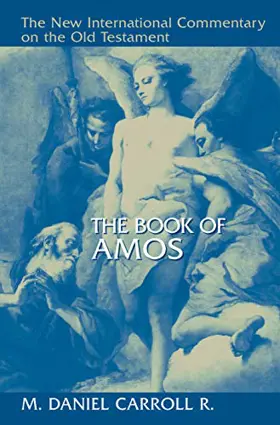

The Book of Amos
in New International Commentary on the Old Testament
Pages
640
Publisher
Eerdmans
Published
11/19/2020
ISBN-13
9780802825384
In this commentary on the book of Amos, Daniel Carroll combines a detailed reading of the Hebrew text with attention to its historical background and current relevance. What makes this volume unique is its special attention to Amos’s literary features and what they reveal about the book’s theology and composition. Instead of reconstructing a hypothetical redactional history, this commentary offers a close reading of the canonical form against the backdrop of the eighth century BCE.
Collections
This book appears in the following featured collections.
- Basic Library Booklist by Detroit Baptist Theological Seminary
- Top Old Testament Commentaries by Engaging Scripture (Nijay Gupta's Substack)
- Non-Western and BIPOC Commentaries by Matt Quintana
Reviews
Daniel Carroll’s Amos maintains the high academic quality of the NICOT series, bringing authenticity, compassion, and insight to his study of this eighth-century prophet. This commentary is a helpful model of serious engagement with the biblical text in the light of recent developments in poetics and rhetoric. It will be useful for scholars, pastors, rabbis, and students who seek a deeper knowledge of the text and message of Amos, and of God.
[Full Review]
M. Daniel Carroll R. dates Amos’ ministry in the latter years during the second quarter of the eighth century BC. The Biblical book that bears the prophet’s name was his message that heralded Yahweh’s sovereign judgment against the nations, and repudiated the distorted piety and societal injustice of Jeroboam II’s Israel. Carroll demonstrates particular sensitivity to the book’s literary design, thereby argues convincingly for the authenticity of the canonical text.
The commentary is preceded by 100-plus pages of introduction, itself an invaluable primer to understand the book and related latest research. Every verse of the text is given careful, even prodigious, exegetical and expository treatments. Different approaches and viewpoints are presented, and the preferred interpretations are judiciously elucidated. The theological imports of Amos’ message are reinforced throughout. Another helpful feature of this commentary is the copious bibliographic notes. There, Carroll scrupulously tabulates works of scholars, from the reformers to those of modern time, that represent different perspectives on almost every pericope. Consummate knowledge of available literature is apparent, a feat not unexpected from a scholar who has devoted close to 30 years to Amos research.
Carroll’s commentary on the book of Amos sits amongst the pinnacle of modern Biblical scholarship. What lies behind the exemplary erudition is a punctilious intellectual enterprise, one for which researchers, teachers, and students of generations to come should be grateful.

